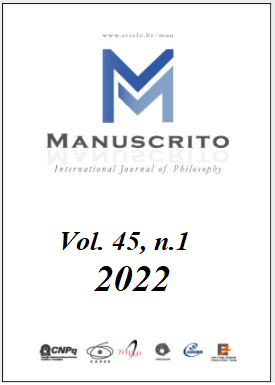Abstract
In this paper I critically address some ideas presented in Patrick Duffley’s book Linguistic Meaning Meets Linguistic Form. Duffley adopts the semiological principle that linguistic signs have stable meanings. I argue that this principle leads Duffley to an artificial description of the meaning of the preposition for, in attempting to avoid the charge of polysemy. Another issue is that the principle is not consistently followed throughout the book, such as in Duffley’s analysis of the meaning of start, or in his acceptance of words with encyclopedic meanings. I also point out that the proposed meaning of start and the view that the meaning of some words is encyclopedic have problems of their own.
References
Duffley, P. (2020). Linguistic Meaning Meets Linguistic Form. Oxford: Oxford University Press.
Fodor, J. A. (1987). Psychosemantics: The problem of meaning in the philosophy of mind. Cambridge, Mass: MIT Press.
Fodor, J. A. (1998). Concepts: Where Cognitive Science Went Wrong. Oxford: Clarendon.
Portner, P. H. (2005). What Is Meaning? Oxford: Blackwell.
Riemer, N. (2010). Introducing Semantics. Cambridge: Cambridge University Press.
Vicente, A., & Falkum, I. (2017). “Polysemy”. Oxford Research Encyclopedia of Linguistics.

This work is licensed under a Creative Commons Attribution 4.0 International License.
Copyright (c) 2022 Manuscrito: Revista Internacional de Filosofia


